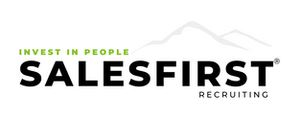We are NOT a “Work Family”
In the quest to cultivate a positive, intentional workplace culture, many businesses embraced the concept of creating a "work family." This was especially true from the early 2000s through the years leading up to - you guessed it - 2020. The intention behind this approach was mostly commendable as Leaders went to great lengths to treat their employees well, but there was also some motivation to blur the lines between professional and personal life. That led to both intended and unintended consequences. So, as we navigate the evolving landscape of work, it's time to reevaluate our approach and prioritize respect for boundaries like never before.
The Myth of the "Work Family"
Even at SalesFirst, we’re a little guilty of this too. Our Administrator Libby has worked here almost since our inception. I joke that she’s my work wife, and we have her daughter’s graduation pics on our work fridge. Clearly, when businesses touted the idea of being a "work family," they were emphasizing camaraderie, support, and loyalty among team members. But in practice, this approach probably created unrealistic expectations and pressured employees to prioritize work over personal obligations. The result? Burnout, resentment, and a lack of work-life balance that ultimately undermines productivity and morale.
An important note - While it's important for businesses to respect boundaries and prioritize employee well-being, this doesn’t mean that they can't expect performance from their teams. A healthy team is capable of shouldering the burden when called upon, and a healthy team has members who are willing to step up for one another. Pressure and performance are 100% essential components of business growth and success.
The Pandemic's Wake-Up Call
The COVID-19 pandemic forced businesses to rethink their approach to workplace culture. As remote work became the new norm and layoffs rocked industries worldwide, the myth of the "work family" began to unravel. People on LinkedIn would question their “Work Family” after getting laid off. What type of “family” just disowns their children and gives them a two-week severance during the hardest times?
The wake-up call revealed the need for a more realistic and respectful approach to employee well-being.
Work is Work, Family is Family
In this new era of work, it's essential to acknowledge that work is work, and family is family. Employees have lives outside of the office (or home office), and expecting them to prioritize work over personal obligations is neither sustainable nor humane. Instead, businesses must prioritize respecting boundaries and giving employees the space they need to balance their professional and personal lives.
Once again, it's worth noting that every industry and position may have different requirements. While some roles may adhere to a traditional Monday-to-Friday, 8-5 schedule with standard breaks, the overarching message remains clear. The practice of likening a company to a family as a means to compel employees to work late into the night on a regular basis is outdated and counterproductive.
Embracing Work-Life Integration
Rather than perpetuating the myth of the "work family," businesses who want to attract talent might want to consider focusing on promoting work-life integration. This means offering flexibility in work schedules and encouraging open communication about personal needs and boundaries. By embracing this more realistic approach, businesses can create a healthier, more sustainable work environment where everyone can thrive.
Early in SalesFirst Recruiting’s existence, we fought hard to have an intentional culture. We attended regular happy-hours. We had a kickball team. We all met on certain days to have coffee together. It was fun, but in hindsight it didn’t work as intended. These days, we have a single holiday party, a single summer picnic, and optional pot-lucks when someone recommends it. And team members almost never hear from leadership outside work hours. Retention has SOARED. People stick around so much longer now.
Moving Forward with Respect
As we look to the future of work, and if you are a company that wants to attract a good volume of talent, we recommend that you commit to respecting boundaries. That’s it! That may well be the secret sauce here in 2024. The days of equating a business environment to that of a family are behind us. Instead, let's embrace a culture of respect, empathy, and understanding, where employees feel valued as individuals with lives outside of work. Together, we can create workplaces where everyone feels supported, respected, and able to achieve their full potential.

